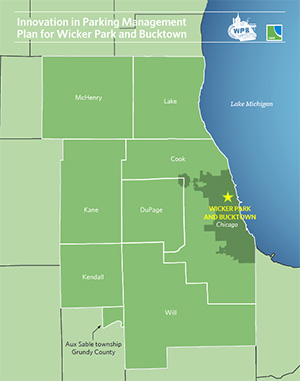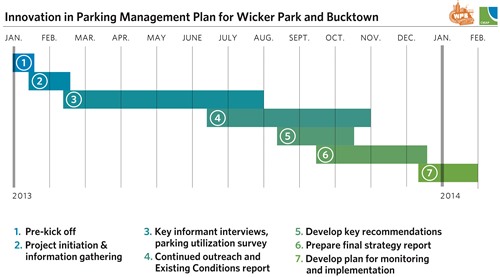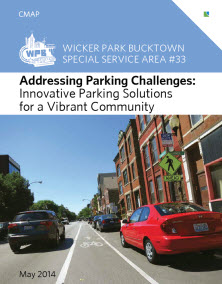 The final plan was unanimoulsy approved on May 21, 2014. View the final plan and poster display!
The final plan was unanimoulsy approved on May 21, 2014. View the final plan and poster display!
The Chicago neighborhoods of Wicker Park and Bucktown are located northwest of the Loop and are widely recognized for their diverse residents, as well as vibrant local businesses, restaurants, culture, nightlife, and engaged community organizations.
In 2009, the Wicker Park Bucktown Chamber of Commerce/Special Service Area #33 (WPB) adopted a Master Plan with the goal of balancing the good that comes from increased prosperity with the desire to preserve local attitude and diversity, while reinforcing local arts, ecology, heritage, affordability, and values. The Master Plan's identified neighborhood values are: "drive less, bike more, buy local, go green, inhabit the sidewalks, indulge in urban eye candy, honor the past, welcome a progressive future, and do so as a unified community."
With this goal of balancing diverse community needs and supporting local businesses, the WPB is partnering with CMAP's Local Technical Assistance (LTA) Program to address parking management. Prioritizing access to the area through multiple transportation options, as well as making parking less complicated and less congested, will serve everyone, including the shopper who wants to park his or her car for a quick errand, the cyclist stopping to meet friends, the suburbanite out for an exciting evening, or a resident coming home after a long day.
CMAP, WPB, and the Metropolitan Planning Council (MPC) will walk through the steps outlined in CMAP's report "Parking Strategies to Support Livable Communities," which explores how parking impacts community vitality and how to understand and solve different parking challenges. The Innovation in Parking Management plan will identify strategies to make the experience of getting around the WPB area safe and enjoyable for people using all modes of transportation. Once complete, the plan will recommend strategies and policies to address identified parking problems by building on the community's assets and supporting them. The plan will cover a range of topics including but not limited to traffic congestion, parking pricing, parking availability, and alternative transportation.
The planning process will include three phases. The first phase will involve a thorough analysis of the existing conditions within the community using information gathered through one-on-one stakeholder interviews, steering committee meetings, review of previous studies, and collection of maps and data. Phase two will focus on creating strategies for WPB's parking management plan based on findings from the phase one analysis and a public workshop. The final phase will combine efforts from previous phases to create the parking management document containing policies, programs, and action steps intended to help the community achieve the future vision.

